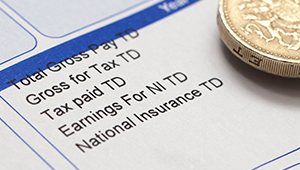Analysis by the think-tank revealed that while the headline costs of increasing NHS pay in line with inflation would be £1.8bn a year, the real cost is half of that – £950m.
This ‘real’ figure takes account of the fiscal impact of money returned to the Treasury through higher tax receipts and lower welfare payments.
There would also be a boon for the economy as a pay boost for medium-income NHS workers is likely to be spent.
“Although the headline cost of lifting the NHS pay cap is significant, a large portion is recycled back to the Treasury almost immediately,” said Alfie Stirling, senior economic analyst at IPPR.
“If the costs of lifting the cap are funded through higher taxes on the richest in society, the overall effect could also be to increase jobs and economic growth. “This is because medium income families – such as the majority of those with someone working in the NHS – are more likely to increase spending in the economy, compared with the highest income families who are more likely to save.”
The think-tank is calling on the government to use the 22 November Autumn Budget to lift the NHS pay cap and revise guidance for pay review bodies.
However, it said a pay increase needed to be fully funded by Whitehall and NHS bodies, not from trusts with already overstretched budgets.
“The government can afford to lift the cap - in fact, they can't afford not to,” Joe Dromey, IPPR senior research fellow added.
“But any additional increase must be funded. NHS Trusts are already running huge deficits; requiring them to find the additional funding from existing budgets risks compromising the quality of care, and the sustainability of the service.”
Phillippa Hentsch, head of analysis at NHS Providers, said she agreed that additional funding would be needed if the pay cap was to be lifted.
“Trust budgets are already over-stretched. There is not currently sufficient funding to finance further pay rises, when the NHS faces so many other pressing demands,” she said.
“The report rightly points out than when assessing the cost of lifting the pay cap, we need to review the total impact for the Treasury and wider economy not just the headline cost associated.”
NHS pay has been restrained for seven years. According to the IPPR, pay for a band 5 nurse is £3,214 lower in real terms than in 2010-11.
Dissatisfaction with pay has helped fuel and recruitment and retention crisis in the health service, the think-tank noted, with the number of NHS nurses in England falling for the first time in four years.











